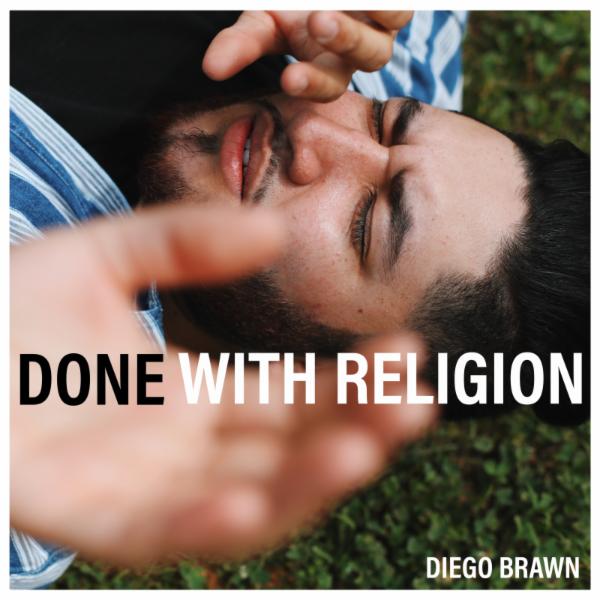by Jordan Hathcock
“The black sheep is sometimes the only one telling the truth” – Unknown
It seems we always want to see something through even when its not working. It is the human trait: We love our ego so much that even when we are harming others, we still deny the truth of it all (I.e., cognitive dissonance). I know that is something I battle. What gives? Why are we so comfortable with something that works for us but is damaging to others? Now, I get that we also harm ourselves in many ways due to many negative habits, but it seems when our lifestyle is beneficial to ourselves and our tribe, it does not matter what happens to the other. Especially in our current social climate, it looks like this issue of privilege is at the forefront of it all. The rich keep getting richer, the marginalized keep getting screwed, and the comfortable (maybe fearful as well?) keep doing nothing. The vicious cycle continues.
Now, I understand that there are numerous factors that play a role in all of this. The “Great Reset” is something that has been boiling around the surface and we are all trying to figure the best course of action to take. Unfortunately, division/strife is the most common denominator. Coming from the “Christian” perspective, it seems we have a dualistic pull of its either “my way or the highway”. Look, we are all going to choose what we think is right when it comes to the actions taken. Its either we have a problem when it comes to our current societal institutions or we do not. It seems from both the conservative and liberal Christian isles; we can agree on institutional issues. That’s a start! But a lot of it seems to be misguided by our worldviews when it comes to social policies. On the conservative side, we see a distrust with our medical institutions along with media outlets. On the liberal side, we see the huge issue of systemic racism and the wealth gap that is increasing more and more each day. Its hard to engage in productive dialogue—on both ends—when trying to find a common ground through it all.
Don’t get me wrong, I have my opinion and I believe its based in fact and reality (like everybody else, right?). I lean more progressive so I will have my perspectives. Some examples. Former president Trumps influence on American Evangelicals was/is really disturbing and dangerous (the attempted coup on the U.S. Capital). Christian Nationalism is running rapid through this country and that is a HUGE problem (but a bunch of Evangelical leaders just signed a letter condemning Christian Nationalism as heretical and antithetical to the teaching of Jesus…so that is encouraging). The conspiracy theories that are running rapid from Evangelicals are not helping. Until Evangelicals evaluate the reasoning behind the onslaught of unproductive conspiracy theories, they will never find the remedy. As Darrell Lackey states:
“Here is what I believe these evangelical critics are missing as they rightfully and courageously address this problem in their own camp: A key factor is the underlying theology, specifically a view of the Bible, and how E/Fs understand inspiration, authority, and beliefs like “Scripture alone.” Until they are willing to address those issues, the problem is sure to continue, as it has now, for decades.”
I do not want to make “theology” our faith. All theology stems from our own culture context. Does theology help? Sure. But it seems that it does more harm than good when it comes to relationships. “Err on the side of love” as Brian Zahnd would say. Orthopraxy > Orthodox all day! With that being said, there is a responsibility when we see the fruit of it all. This goes for both the right or left leaning “Christian”. Seeing this teaching of Jesus as being crucial to how our thoughts become actions, ignoring it would be futile. That is our privilege. We are participants of the Jesus way and this means we are called to be feet washers (public servants), tables flippers (speakers of truth to power), and leprosy healers (community liberators). We have these privileges in order to share them with others. Its Kenosis 101. We self-empty ourselves in order to heal and liberate others. It’s the Gospel! If we confuse this with using our privilege to suppress and dominate others, we are nothing more then Wolves in sheep’s clothing. Its funny but within the American context, we associate sheep as weak and just brainwashed followers. But we hold up the more the powerful animal (lion or wolf) as the symbol of liberty and leadership.
This is antithetical with the way of Christ. He is the slaughtered lamb, yellloooo (Rev. 5:6)! I get it, we all want liberty and to do whatever the hell we want as Americans. But true freedom is when we are living in the way of servanthood—which is a loving community not slaveholders. I would even go further and have us inherent the call of black sheep–carving our own paths along this terrain we call life. To those of us who have privilege and denying its responsibility, don’t live in fear! Be that lost black sheep, having trust that the True Sheppard will find you and guide your path to genuine healing and liberation. This is the way, I think, in order for all to be free. Be the Black Sheep in Wolves Clothing! Like Martin Luther King said: “No one is free until we are all free.”

Jordan Hathcock began writing as a regular guest blogger and has been a great addition to the site. He also writes at his own site called Hazy Divinity He can be contacted by email at: jrhathcockss@gmail.com



























